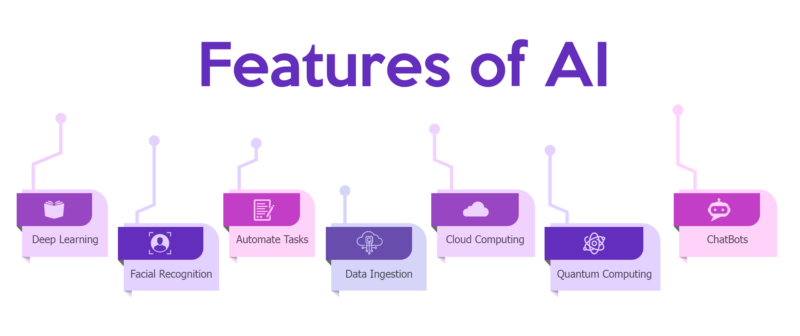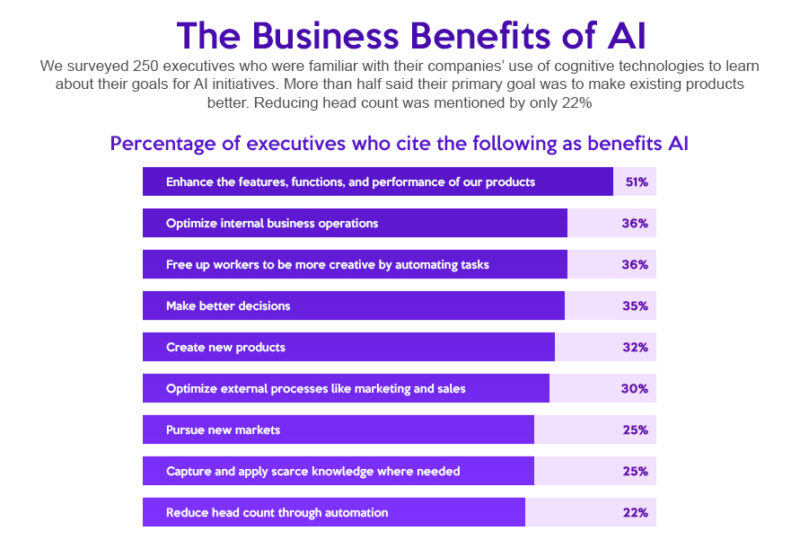The advent of Artificial Intelligence (AI) has brought about a paradigm shift in various industries, and outsourcing is no exception. As AI continues to evolve, it is reshaping the outsourcing landscape, introducing new possibilities and challenges.
This article will explore how AI will impact outsourcing, delving into its influence on cost-effectiveness, efficiency, job displacement, and the quality of services rendered.
Understanding AI in Outsourcing

Before discussing its impact, it is essential to understand what AI entails in the context of outsourcing. AI is a broad term encompassing several technologies, including machine learning, natural language processing, robotics, and cognitive computing. These technologies enable machines to mimic human intelligence, learn from experiences, interpret complex data, and execute tasks that typically require human intellect.
AI’s Role in Redefining Efficiency and Cost-effectiveness
One of the primary reasons companies resort to outsourcing is cost-effectiveness. However, AI’s emergence has started to disrupt this traditional cost paradigm. AI technologies can perform repetitive, mundane tasks more efficiently than humans, and they do not require rest, benefits, or a physical workspace. This shift could result in significant cost savings for businesses that traditionally relied on outsourcing for these tasks.
Moreover, AI systems can work around the clock, providing a level of efficiency that human workforces cannot match. For instance, customer service chatbots can handle multiple queries simultaneously, providing real-time solutions 24/7. This increased productivity and efficiency could make AI a more attractive solution than traditional outsourcing.
The Quality of Services Rendered
Below are some examples of services that AI does when it comes to the outsourcing industry:
Enhanced Data Analysis Capabilities
The advanced capabilities of AI to process and analyze massive amounts of data at an unprecedented speed and accuracy serve as a significant asset to improve the quality of services offered. AI’s ability to interpret complex data structures and identify patterns goes far beyond human capacity, leading to more precise insights.
Rapid Turnaround Time
When it comes to tasks like data analysis and gaining customer insights, AI algorithms stand unmatched. They can churn out highly accurate results in a minuscule fraction of the time that a human team would require. This expeditiousness not only boosts productivity but also ensures that decision-making processes aren’t delayed due to time-consuming data analysis.
Superior Performance
The AI’s speed and accuracy contribute to its superior performance compared to traditional methods of data analysis. This unparalleled efficiency is due to AI’s ability to work tirelessly, with an uninterrupted focus that humans, given their physical and mental limitations, cannot maintain consistently. This can lead to consistently high-quality outcomes that enhance the overall performance of a business.
Effective Decision-making and Strategy Formulation
The precise insights derived from AI-powered data analysis can serve as a robust foundation for decision-making and strategy formulation. By providing a clearer understanding of patterns and trends, AI supports leaders in making informed decisions and strategizing effectively, consequently optimizing operational efficiency and business growth.
Improved Business Outcomes
The culmination of these advantages—enhanced data analysis, rapid results, superior performance, and effective decision-making—can significantly improve business outcomes. By streamlining processes and offering accurate insights, AI paves the way for higher productivity and profitability.
Boosted Client Satisfaction
With AI-enhanced services, businesses can deliver high-quality results consistently, which can significantly improve client satisfaction. Accurate insights, timely delivery, and effective decision-making all contribute to superior service delivery that exceeds client expectations, fostering strong, long-term client relationships.
Job Displacement and the Changing Nature of Work
Although AI offers numerous benefits, it also raises concerns about job displacement. As AI systems become more adept at performing tasks traditionally outsourced, there may be less need for human involvement in these areas. This shift could lead to job losses in countries heavily reliant on outsourcing industries.
However, the advent of AI doesn’t necessarily mean the end of human involvement. Instead, it signifies a change in the nature of work. As AI takes over routine tasks, humans can focus on more complex and creative aspects of projects. This shift could lead to an increase in outsourcing for high-skilled jobs requiring human innovation, emotional intelligence, and critical thinking skills that AI lacks.
The Evolution of Outsourcing Relationships
The ascent of Artificial Intelligence is not just about the automation of tasks; it is also reshaping the dynamics of outsourcing relationships fundamentally. In the past, the relationship between businesses and outsourcing firms was primarily transactional in nature. Businesses would hire these firms to execute specific tasks that they did not have the bandwidth or resources to perform in-house.
However, with the advent of AI and its rapid integration into various business functions, this dynamic is undergoing a significant transformation. AI has the potential to automate a substantial chunk of routine tasks that were traditionally outsourced. This capability is causing a shift in the nature of outsourcing relationships from being purely transactional to becoming more collaborative and strategic.
In this new scenario, outsourcing firms are no longer viewed merely as vendors who provide certain services. They are increasingly seen as valuable partners who can provide strategic guidance and collaborate with businesses to harness the power of AI technologies effectively. This collaboration is not just about implementation, but it extends to sharing knowledge, expertise, and best practices to leverage AI to its maximum potential.
As such, outsourcing providers are finding themselves in new roles where they are required to contribute strategic insights and offer advice on how to optimize the use of AI. They are also instrumental in navigating the complexities and potential pitfalls that can arise during the implementation of AI. This evolution underscores the changing value proposition of outsourcing providers, signifying their transition from traditional service providers to strategic partners in the era of AI.
This transformation is indicative of the broader changes that AI is bringing about in the business world. It is ushering in a new era of collaboration and strategic partnerships that can drive innovation and deliver superior outcomes, thereby adding a new dimension to the concept of outsourcing.
The Future of AI and Outsourcing
The impact of AI on outsourcing is profound and multi-dimensional. While it poses challenges, such as potential job displacement, it also opens up new opportunities for increased efficiency, cost savings, and improved service quality. Moreover, it is changing the nature of work and outsourcing relationships, leading to a more strategic and collaborative approach.
The key to navigating this transformative period is adaptability. Businesses, outsourcing providers, and workers must be ready to adapt to these changes, upskill, and embrace new ways of working. This adaptability will not only mitigate the challenges posed by AI but also harness its full potential to drive business growth and innovation.
Preparing for the AI-Driven Outsourcing Landscape
For businesses, understanding AI’s potential and incorporating it into their strategic planning is crucial. They need to invest in AI technologies and partner with outsourcing providers who possess AI expertise. Furthermore, they must reimagine their business processes, considering how AI can automate routine tasks and enhance decision-making capabilities.
For outsourcing providers, the advent of AI necessitates a shift in their service offerings and competencies. They must invest in developing AI capabilities and upskilling their workforce to meet the changing demands of their clients. Moreover, they need to transition from being pure service providers to strategic partners, collaborating with clients to implement AI technologies effectively.
For workers in the outsourcing industry, the rise of AI presents both challenges and opportunities. While there is a risk of job displacement, there are also opportunities for upskilling and undertaking more complex and creative tasks. Workers must be proactive in acquiring new skills and adapting to the changing nature of work.
The Potential Limitations of AI in Outsourcing
While AI holds great promise for the outsourcing industry, it is essential to recognize its limitations. AI systems are only as good as the data they are trained on. Therefore, they can sometimes produce incorrect or biased results if the input data is flawed or incomplete.

Data Quality Dependency
AI systems are highly dependent on the quality of the data they are trained on. If the input data is flawed, incomplete, or biased, the output or decisions made by the AI system can be incorrect or skewed. It means businesses need to ensure high-quality, unbiased data for training AI systems, which can be a challenging task.
Lack of Emotional Intelligence
AI, regardless of its advanced capabilities, cannot match the emotional intelligence of humans. AI systems lack the ability to understand and interpret complex human emotions, which is a crucial aspect in fields like customer service where empathy and understanding play a significant role. This limitation underscores the continued necessity for human involvement in certain areas of outsourcing.
Ethical and Legal Concerns
AI usage raises several ethical and legal concerns. For instance, there might be issues related to privacy and data protection, particularly when handling sensitive customer data. Also, the decision-making process of AI systems is often opaque, leading to a lack of transparency that can raise trust issues.
Difficulty in Handling Complex Tasks
While AI is excellent for automating routine tasks, it struggles with tasks requiring high-level cognitive functions, creativity, and critical thinking. AI systems are yet incapable of matching human creativity and problem-solving abilities in complex, unstructured situations.
High Initial Investment
Implementing AI technology requires a significant initial investment, including costs related to procuring AI technology, integrating it into existing systems, training staff to work with AI, and maintaining the technology. For some businesses, these costs can be prohibitive.
Job Displacement
AI’s ability to automate routine tasks raises concerns about job displacement. While this can lead to cost savings for businesses, it also risks job losses, particularly in countries where outsourcing is a significant source of employment. However, this can be mitigated through re-skilling and up-skilling programs to prepare workers for higher-value tasks.
Despite these challenges, the potential benefits of AI in outsourcing far outweigh the limitations. With careful planning, businesses can effectively leverage AI to transform their outsourcing strategies and operations.
Final Words
The impact of AI on outsourcing is a game-changer, transforming how businesses operate, outsourcing providers deliver services, and workers perform their tasks. Although AI poses certain challenges, its potential benefits far outweigh these challenges. By embracing AI, adapting to new ways of working, and recognizing the value of human skills, businesses, outsourcing providers, and workers can navigate this transformation successfully and emerge stronger in the AI-driven outsourcing landscape.
As AI continues to evolve, its influence on outsourcing will only become more pronounced. Its potential to transform the industry is vast, and its impact is already being felt. Therefore, understanding and preparing for this change is not just a matter of staying relevant; it is a matter of survival and growth in the rapidly evolving digital world.



Leave A Comment
You must be logged in to post a comment.